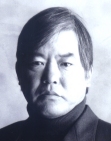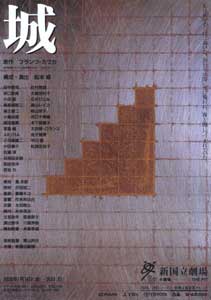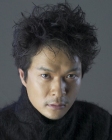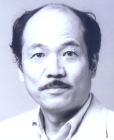Beyond the labyrinth that always eludes attempts to reach it
Franz Kafka (1883-1924),
a giant in 20th-century literature, who is famed for Die Verwandlung
(The Metamorphosis) and other short stories, left behind three unfinished
novels and asked a friend to burn them to avoid publication after
his death. However, these works were published by the friend after
the Kafka's death, and quickly their diverse literary elements gave
rise to a wide variety of interpretations, attracting public attention
from all angles, including philosophy, religious studies, and psychology.
Das Schloss (The
Castle), Kafka's last novel, is a story in which the protagonist
K, who arrives at a village controlled by the castle, encounters
absurd events and gradually becomes exhausted. K is inevitably thrown
into a mysterious world from the outset and makes a assiduous effort
to unravel the mystery that he encounters. But his efforts are not
rewarded at all, and he is swallowed up by something wildly unreasonable
and illogical. He is blocked by a massive but invisible bureaucratic
structure that cannot be managed with his own power, and his will
and feelings are not accepted at all. This world of absurdity will
certainly arouse the sympathy of people today who are exposed to
the incomprehensible real world. The Czech novelist provides hints
to his readers and perplexes them, but does not provide answers.
This method of Kafka's is replete with highly theatrical fun and
is deeply tinged with a mysterious charm, which invites the readers
to venture beyond the labyrinth. A stage performance of this novel
will be given under the direction of Matsumoto Osamu featuring his
special method of eliciting new allure from individual actors and
actresses, while holding workshops repeatedly over a long period
of time. Matsumoto won acclaim for his adaptation of Kafka's long
novel Der Verschollene (Missing) for stage under the title
Amerika. Performances choreographed by Ide Shigeta, which
are found in almost every scene of the play, skillfully express
the humor of the work as well as its distortions. Full of a playful
spirit, this is truly a culmination of contemporary drama.
Synopsis
K arrives at a
village covered with heavy snow and blurts out spontaneously, "I
am a surveyor and am invited by the Castle." Although he tries
to reach the Castle in various ways, he is kept in the village and
is unable to reach it by any means. Once he decides to start living
in the village for a while, he becomes surrounded by various unique
villagers. He is made a fool of by the village chief, the archetype
of a petty official, and is followed around by two men who look
exactly alike and call themselves K's assistants. Eventually, K
ends up living together with a woman who is an official 's lover
and works at a tavern, and mysterious people appear and disappear
one after another. The massive but invisible bureaucratic machine
named the "castle" blocks K's path and he is continually
toyed with by strange people.
Can K really reach the mystery-shrouded castle?
|
|
|
 |
 |
|
Tanaka Tetsushi
|
Sakaguchi Yoshisada
|
Manako Keiji |
Oda Yutaka |
|
|
|
 |
 |
 |
|
Ishimura Mika
|
Osaki Yuriko
|
Ishii Hitomi |
Hayama Reiko |
Matsuura Sachiko |
|









